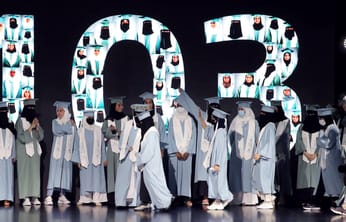
Leading The Charge
With education, mentorship, collaborations, and more, here’s how Saudi Arabia is attempting to close the gender gap in AI

Saudi Arabia has been making big moves in the metaverse- and it’s only getting started.
Argentina’s victory in the thrilling FIFA World Cup 2022 final sure made history, but so did Saudi Arabia when it defeated Lionel Messi’s team early on in the FIFA tournament- a win that saw sales for Saudi Arabia-themed non-fungible token (NFT) collection, The Saudis, soar 387%.
The Latin American nation’s fan token, on the other hand, plummeted 21% after the team’s loss- but the growth spurt in fan tokens during the month-long tournament is just one of the numerous indicators of the Kingdom’s buzzing Web3 scene.
Web3 is the term used to describe a potential next era of the internet and includes concepts such as blockchain, metaverse, and non-fungible tokens (NFTs).
Saudi Arabia, the world’s biggest oil exporter, has been revamping its economy in line with its Vision 2030 national transformation plan to diversify away from dependence on crude revenues, and put technology at the center of its future growth.
Although Web3 is still in its infancy, the kingdom is swiftly fueling and embracing the promise of an unknown future that has the potential to unleash billions of dollars in new opportunities.
“Saudi Arabia is in a golden time of change in fast leaps with a strong innovation platform, bold investors excited about Web3, and a government that is encouraging to venture into new technologies,” said Kholoud Attar, founder and Creative Director of metaverse platform builder DRB as well as and NFT designers platform Design KSA. “This, combined, makes Saudi a haven for parties interested in Web3.”
The global Web3 market size reached US$3.2 billion in 2021, and it is expected to grow to $81.5 billion in 2030 at a compound annual growth rate (CAGR) of 43.7%, according to analysis by Emergen Research. The growth will be driven by rising demand for more user-oriented, interactive, advanced, and secured technologies, such as blockchain, NFTs, digital and crypto currencies, metaverse, and virtual reality, the report said.
According to consultancy PwC, the Middle East region’s blockchain market alone is predicted to reach $3.2 billion by 2024. Meanwhile, a report by Strategy& Middle East, part of the PwC network, forecasts that the metaverse will inject $15 billion into Gulf economies by 2030, with Saudi Arabia and the UAE leading the way.
Indeed, Saudi Arabia will dominate with a $7.6 billion contribution, and the UAE will follow with $3.3 billion, the study said, on the basis of projections that assessed growth in the component technologies, platforms, hardware, and software, as well as the economic impact of new metaverse applications such as content creation and shopping.
The report identified travel and tourism as the sector with the potential to reap the greatest economic gain from the metaverse –an estimated $3.2 billion– that could both facilitate digital tours, as well as inspire in-person travel.
Attar noted that the Kingdom’s metaverse initiatives have already made global headlines, signaling its potential to leapfrog other markets to become the world leader in Web3. “The Ministry of Tourism and Entertainment has announced projects and investments taking advantage of Web3 in revolutionizing the industry,” she pointed out.
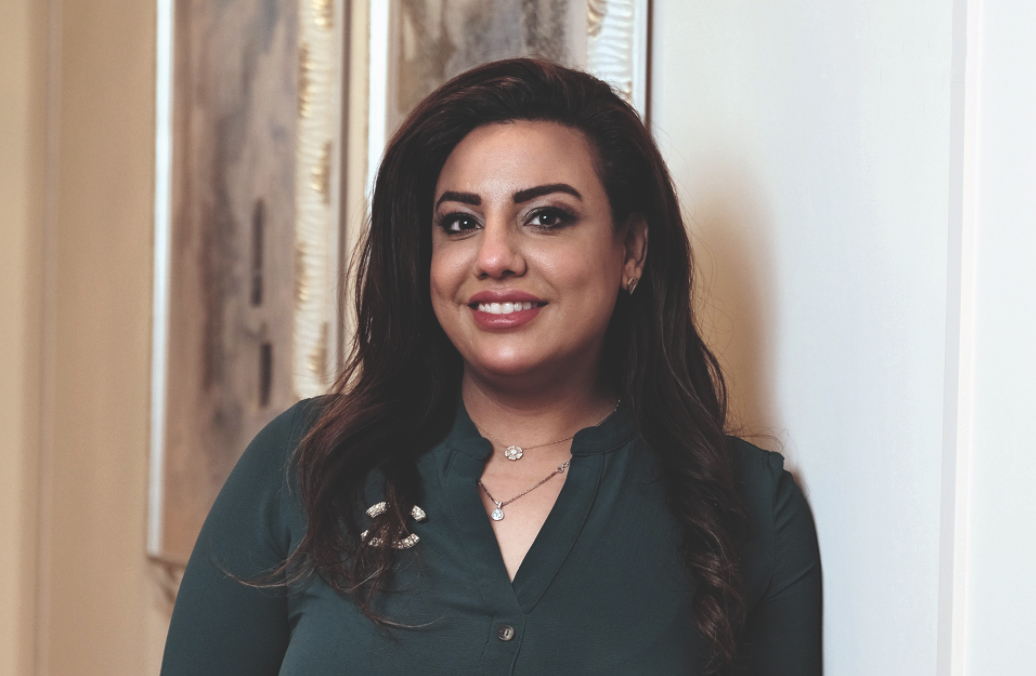
Last year, the ancient city of AlUla, one of the Kingdom’s most touristic destinations and home to hundreds of historic monuments and natural attractions dating back to more than 200,000 years, made its foray into the metaverse. The Royal Commission for AlUla (RCU) launched an immersive 3D model of Hegra’s Tomb of Lihyan, marking the first time a UNESCO World Heritage Site has been recreated for the metaverse.
The landmark is available to online visitors on Decentraland, a platform that allows users to acquire and visit virtual land plots. Set among a realistic recreation of AlUla’s desert landscape, visitors can take a 360-degree tour of the 72-foot tall tomb, and step through the tomb’s doorway, recreated in realistic dimensions, which is impossible in the real world. Hegra in the metaverse will also play host to several virtual events in the future, setting the stage for more opportunities for innovation and virtual reality (VR) tourism.
In line with these groundbreaking developments, Attar’s startup DRB is looking to tap into the VR tourism market, and support the Saudi’s new metaverse economy. “DRB gives the world access to Saudi, while supporting Vision 2030 with a metaverse and souvenir experience representing the wonders of the kingdom,” she said. “We have been developing the DRB platform for the past year, which will be a metaverse platform modelling key Saudi events using mixed reality (MR) to livestream the event and touristic sights, giving anyone from the world a chance to create their Web3 character, accessorized with items designed by local Saudi designers, and virtually roam around the event, and interact with other attendees, while being linked with a physical caravan present at the event that acts as a headquarters.”
Attar said NFTs are also gaining growing interest in Saudi Arabia, which is why she has launched the Designers Network platform for creators. “As private entities, we see the rise in interest in NFTs in Saudi,” she said. “The Saudi NFT Club recently held an exhibition where all the NFTs sold out. And Designers Network, which started as a published magazine for Saudi creatives 16 years ago, is now relaunching as an online magazine and web platform with curated NFTs for designers venturing into different formats of NFTs not just art.”
NFTs are unique cryptographic tokens that exist on a blockchain and cannot be replicated, and can represent real-world items like artwork and real estate. The space has been drawing entrepreneurs from around the world, with JP Morgan Chase estimating the global NFT market to be worth more than $7 billion.
Salwa Radwi, founder and CEO of Nuqtah, a business that proudly declares to be Saudi Arabia’s first NFT marketplace, said that the Kingdom is adopting Web3 in many forms. “Saudi Arabia is already one of the leading tech countries in the world,” she said. “Our most forward-thinking and fast-moving entity is the Ministry of Communications and Information Technology, and H.E. Eng. Abdullah Alswaha, Minister of Communications and Information Technology, is very pro-blockchain himself. We had the luxury of meeting him. He passed by our office, and he gave us a talk about how Web3 is the future, and that it’s inevitable, so the faster we get into it, the more efficient our life as a society will be. The government is actually talking to us, and asking, ‘How can we support you as a first-mover in the Kingdom?’ That should give anyone an idea of the kind of push and support that’s coming.”
Radwi also noted that the implementation of Vision 2030 comes all the way from the top, which will enable Saudi Arabia “to be a tech hub, and to be the place of the future.” “More than 60% of the Saudi population is under 30 years old, which gives you an idea of the buying power, and the forward-thinking mindset available,” she added. “Think of this population, and even the kids currently in high school. These kids will be your primary consumer in the next five or 10 years. They are already on Roblox and playing internet games. They’re already familiar with this world. Imagine when these kids have this buying power– the barrier to entry is so much easier, because there’s less education required for that conversion to happen. So, it’s on us to create that infrastructure for this new generation coming in, and the government is already aware of this, and pushing towards support and regulation.”
Ownership of NFTs is currently concentrated at just 0.1% of crypto owners –only a few hundred thousand people– according to blockchain analysis platform Chainalysis. Keeping that stat in mind, Nuqtah was founded to provide, propel, and protect originators across Saudi and the MENA region with a mission to aggressively spearhead the adoption of Web3 by developing and enabling a complete and robust infrastructure. The startup closed a pre-seed round led by Shorooq Partners last year, and it is also set to receive investment from prominent Hong Kong-based game software company and venture capital (VC) company Animoca.
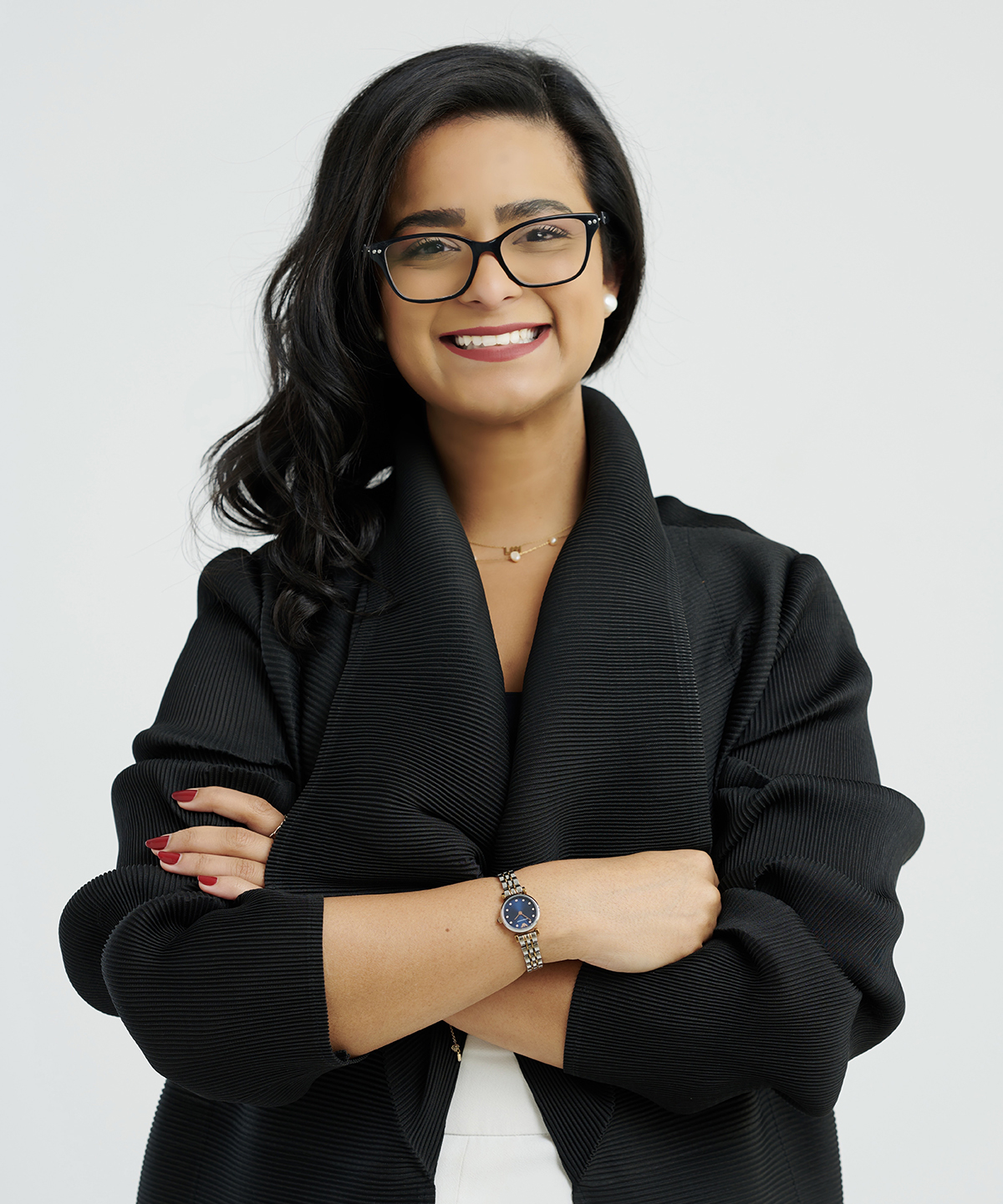
“International VCs are not only recognizing the power of the technology, but the power of that technology intertwined with this region,” Radwi said. “I get LinkedIn messages all the time from VCs around the world, and we have the luxury to pick and choose. Some might believe it’s a little early for this world, but then again, if you join at a later time, you don’t have the luxury to set the precedent. The most googled term in Saudi in 2020 was ‘NFT,’ so the drive, curiosity, hunger is already here. And we get to set the precedent to how this market will shape, because we are localizing it.”
Nuqtah, which was part of the Sanabil 500 MENA seed accelerator program, an accelerator program launched by 500 Startups and Sanabil Investments, aims to be “the ultimate environment” for creatives in Saudi Arabia. The startup is also part of Saudi’s SME Unicorn Program, as one of the nation’s potential unicorn contenders. Radwi added that Nuqtah is currently also working with Saudi’s Ministry of Culture to build “something similar to a ‘cultureverse,’ where people can visit different parts of Saudi, and feel their cultures.”
Other factors supporting the favorable environment for metaverse development in the region include the $14,808 per capita average disposable income in the Gulf, according to luxury retailer Chalhoub Group’s report, GCC State of the Metaverse and its Potential for Luxury Retail. The metaverse industry is currently worth close to $65 billion, and it is expected to reach $13 trillion by 2030 with fashion and luxury retail representing $50 billion, the report said.
“We have four pillars as part of our initiative to advance the metaverse ecosystem in Saudi Arabia, which include creating awareness, building capabilities, supporting entrepreneurship, and attracting funding for the new startups,” said Abdullah Alshamrani, General Manager of the Center of Digital Entrepreneurship (CODE), an initiative of the Saudi Arabia’s Ministry of Communication and Information Technology (MCIT). “As part of our comprehensive lineup of plans, we will also be running a week-long series of meetups dedicated to the metaverse to discover and engage with founders,” he added. “In particular, we intend to steer conversations to discuss potential commercialization opportunities in metaverse tech in the Kingdom. It’s important that we support the development of commercially sound use cases.”
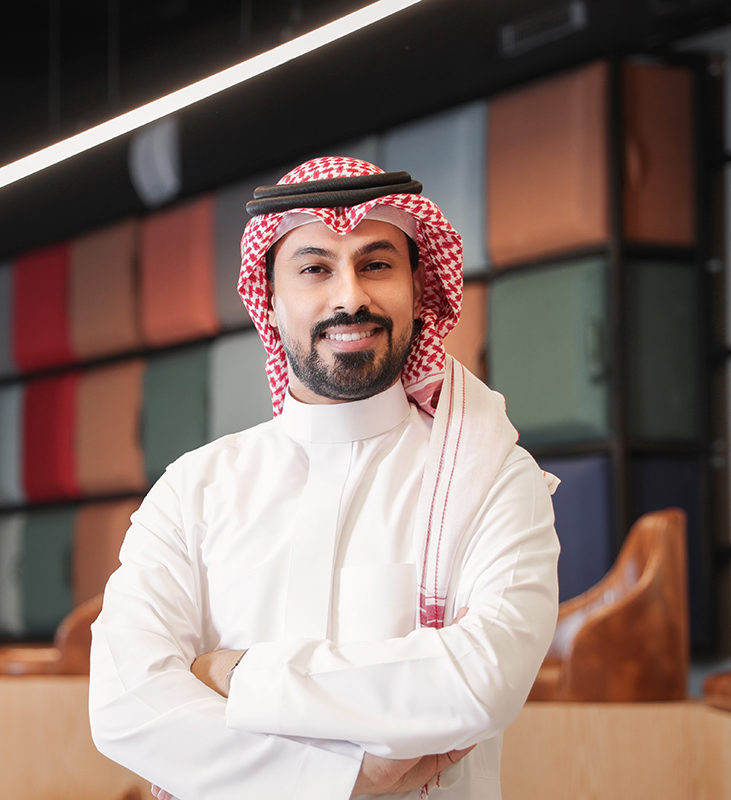
The Ministry also plans to launch pitch competitions for startups to present their ideas and win cash and mentorship support to build their minimum viable products (MVPs), Alshamrani said, adding that Saudi Digital Academy, a key national initiative by the Ministry, will also help founders build capabilities with different gaming engines. “We are also running the first metaverse accelerator in the Kingdom,” Alshamrani said, noting that the three-month accelerator program will provide founders with training and mentorship opportunities, as well as introduce them to investors.
Earlier this year, Saudi Arabia’s $500 billion flagship project NEOM, a futuristic economic zone eventually meant to house 9 million people, unveiled its “cognitive digital twin metaverse” that enables visitors to have a simultaneous presence at NEOM both physically and virtually in the form of an avatar or hologram. A marketplace for cryptocurrencies and NFTs will also be available on the platform, which was unveiled at the LEAP technology event in Riyadh last year.
HRH Crown Prince Mohammed bin Salman said last year that Saudi Arabia is also planning to list NEOM on the kingdom’s Tadawul exchange. The initial public offering (IPO) is expected to take place in 2024. “NEOM will add 1 trillion riyals ($266 billion) to the Saudi stock market value. At least 1.2 trillion in the beginning and the overall will increase after project completion to exceed 5 trillion,” Al-Ekhbariya TV reported the Crown Prince as saying.
NEOM has also committed $1 billion in artificial intelligence (AI) initiatives, including its metaverse platform, which will feature robots, holograms, mirrored facades, and run on 100% renewable energy.
Earlier this year, the Kingdom also unveiled more than $6.4 billion worth of investments in future technologies and entrepreneurship to accelerate the country’s digital economy, including the launch of state oil giant Saudi Aramco’s Prosperity7 Ventures– a $1 billion global VC fund, with a long-term view to supporting the development of next-generation technologies and business models that will bring prosperity and positive impact on a vast scale.
Aramco, the largest oil company in the world, has named its fund after Dammam Well-7, the first oil well to strike commercial oil in Saudi Arabia, also known as the ‘Prosperity Well,’ a poignant sign of the crude producer’s shift to the new era. Saudi Arabia is also investing $38 billion in gaming companies through state-owned company Savvy Games Group, as part of plans by the kingdom to develop its gaming and esports industry. 89% of the Saudi population are gamers– the highest per capita globally. The Crown Prince is also the chairman of the board of Savvy Games, owned by Saudi Arabia’s Public Investment Fund (PIF).
The country’s gaming and esports industry, aiming to create 39,000 jobs, and boost gross domestic product (GDP) $13.3 billion by 2030. The Kingdom has also increased and improved latency in its internet services to aid its technology transformation.
“Saudi Arabia is poised to become a global hub for blockchain technology and Web3,” Joseph Dallago, CEO of crypto-asset platform Rain, said. “We’re looking at a country that has a history of making bold and sizeable investments into innovative technologies. Saudi Arabia has been making a grand push towards economic diversification, and boosting economic growth away from the oil sector. This is backed by significant investment in key business enablers such as local talent. For example, at Rain, we are seeing so much locally homegrown talent in Saudi, from developers to community managers.”
Rain has high aspirations stemming from the potential of the MENA region that can be unlocked through the adoption, scaling, and usage of crypto assets, Dallago added. “We look at Saudi Arabia as the natural leader for unleashing this industry’s potential in this region,” he said. “These ambitions are possible given the right caliber of leadership in the kingdom, the right talent, and strong technological infrastructure. At Rain, we’re looking to help Saudi Arabia and countries in the region by building the infrastructure layer from which blockchain and Web3 technologies and businesses can emerge.”
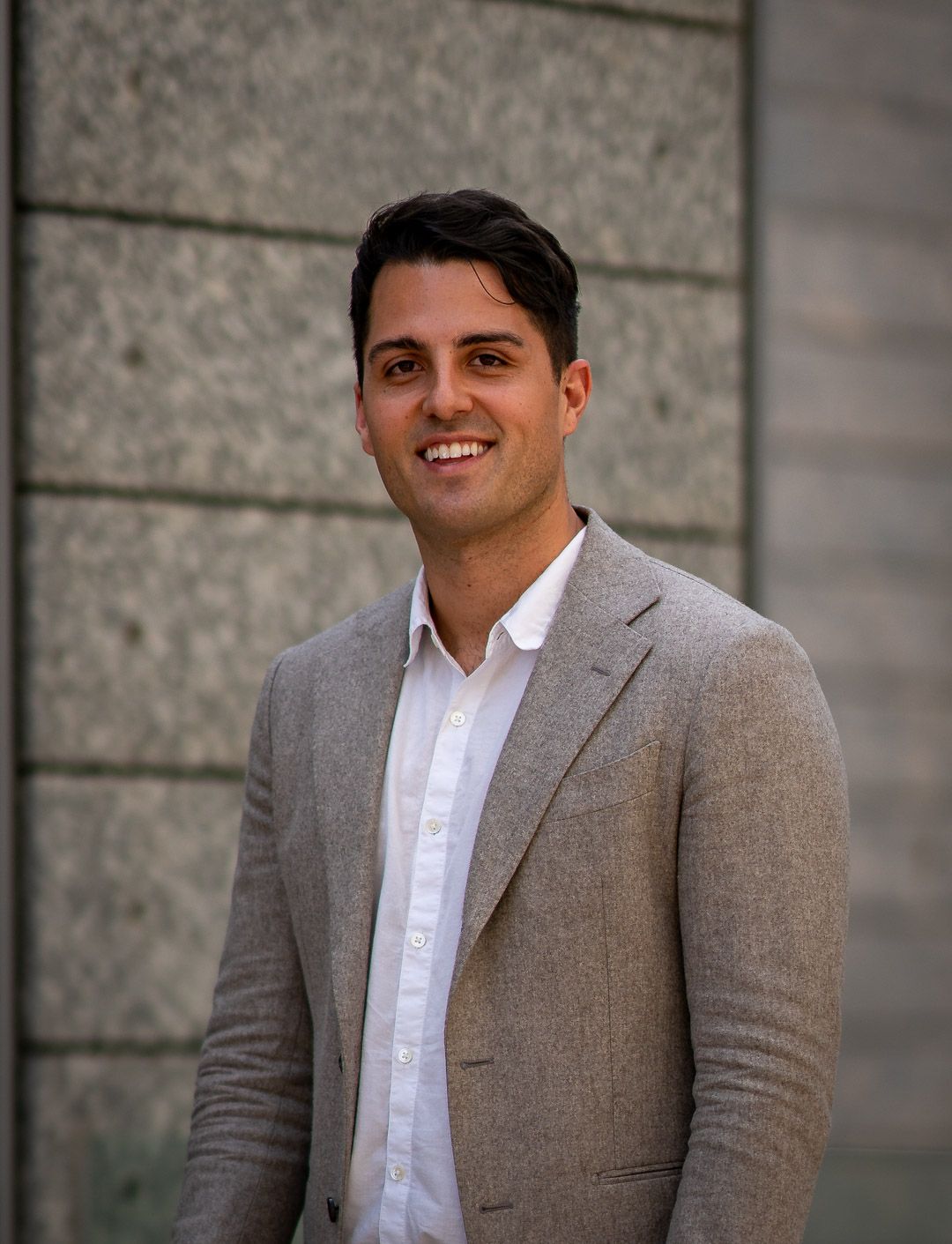
Bucking the global crypto bear market, the MENA region saw $566 billion in cryptocurrency trading between July 2021 and June 2022, a year-on-year increase of 48%, making it the fastest growing region in the world. A 2022 Geography of Cryptocurrency study by New York-based blockchain data platform Chainalysis also noted that Saudi Arabia was one of the strongest markets, with cryptocurrency transaction volumes surging 195 percent year-on-year. Overall, the region accounts for 9.2% of global cryptocurrency trading, up from 7% last year.
Unlike other parts of the world, central banks in the MENA have been driving the evolution of innovative technologies. Last year, Saudi Arabia appointed Mohsen Al-Zahrani, a former Managing Director at consultancy Accenture, to lead its virtual assets and central bank digital currency (CBDC) strategy. Al-Zahrani has been mandated to engage the world’s biggest crypto firms with regards how to regulate the sector.
Commenting on these developments, Dallago said, “At Rain, we fundamentally believe in the power of a well-rounded regulatory framework in ensuring success for the crypto asset industry. We are maintaining close dialogue with relevant government entities to work together towards building a framework for crypto assets that can serve and benefit the Kingdom, achieve different objectives of Vision 2030, and create new avenues for economic opportunities for Saudis. We aim for our experience in KSA to serve as a benchmark for us, as well as other players, on the positive outcomes that can result from positive engagement between private and public stakeholders in the crypto asset industry. We look forward to sharing the outcome of our collaboration with other countries, as we move towards a globally recognized and regulated crypto asset industry.”
With much evidence that Saudi Arabia is firmly committed to developing a Web3 economy, and becoming one of the fastest-growing markets globally, Nuqtah’s Radwi insists that -contrary to some perceptions- the Kingdom is further ahead in innovation adoption than various international markets.
“The beauty of it is if you look at our numbers, you will realize that Saudi ranks in the top three in the world per capita, when it comes to online creative content,” Radwi said, a statistic that has been greatly attributed to the nation’s tech-savvy youth. “We are directly enabling the creator economy. We have the top user base when it comes to Twitter and Snapchat. So, how can you play catchup when your society is already leading? Of course, in the case of any new technology, there’s always a fear. We are at the stage where the early adopters are getting into the space, and the more they increase, then we’re getting into the norm, so it’s really just transitioning to that.”
All of this seems to indicate that Saudi Arabia is only getting started on its Web3 ambitions- and its future certainly is something to look forward to.
Discover the most outstanding articles.اكتشف أبرز المقالات.

Harnessing the power of digital twins to reimagine cities across the KSA and beyond. According to PwC’s 2022 report,

How Riyadh-based The Garage is contributing to a flourishing startup culture in Saudi Arabia In the heart of Riyadh, nestled

Saudi astronauts Rayyanah Barnawi and Ali Alqarni make history in giant leap for the kingdom. From earthbound dreamers to cosmic